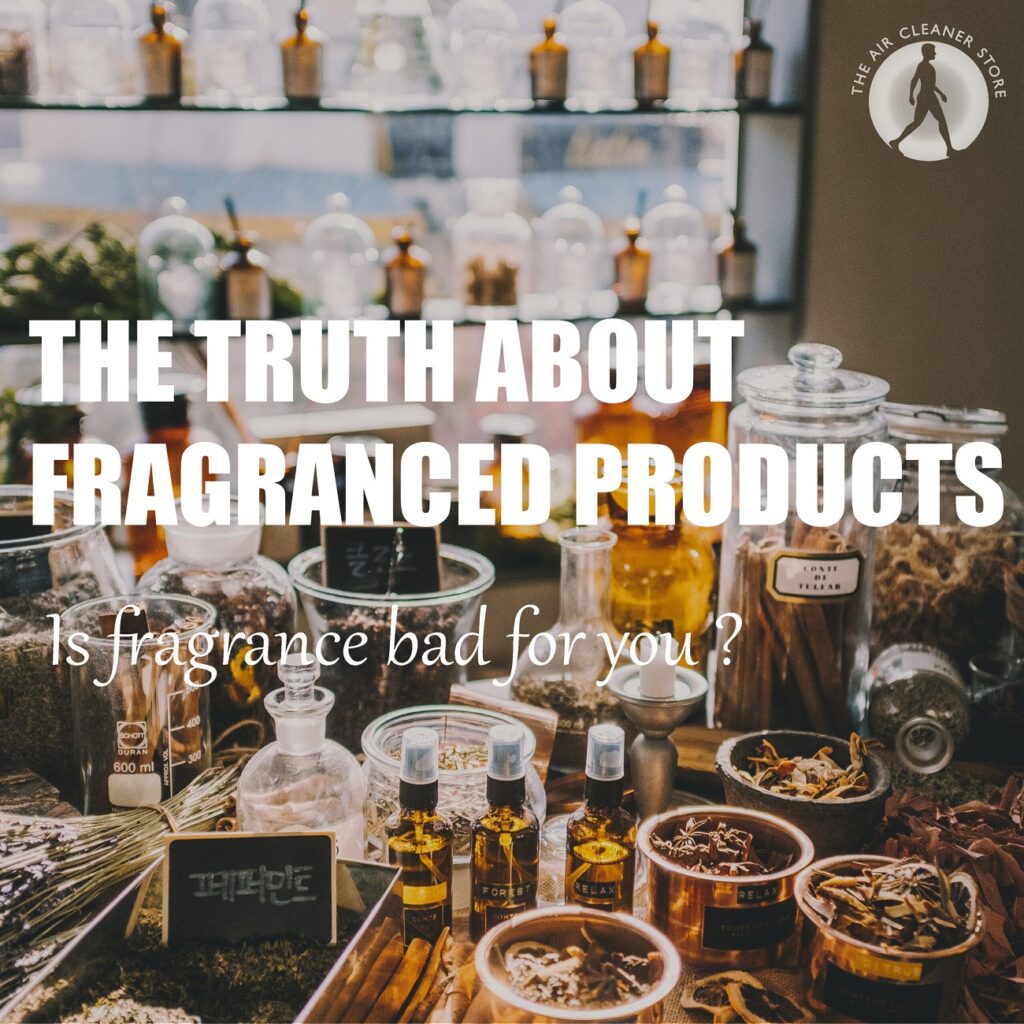Smell is one of the strongest human senses. It affects behavior, emotions, perceptions and memories, more so than any other of our other senses.
Fragrances and scented products make us feel better about ourselves and the things in our home. Very commonly we associate the smell of a product with it being more effective & healthier.While we have all been trained to associate cleanliness with a smell, the truth is that’s not always the case.
The added scents in perfume, cleaning product, home freshener, deodorant, laundry detergent, or candles aren’t actually making the product perform better.
If you’re like most people, you probably assume fragrances are 100% safe, which is what the manufacturers want you to believe.
Do you know what your perfume is made up of?
This should be easy, right? You can find out what’s in the product by reading the ingredient label.
In the fragrance industry there is something that is called “Trade Secrets” . This is a law that protects fragrance manufacturers and means that they are not required to share the ingredients that make their product unique. This has made it easy for manufacturers to sneak all kinds of chemicals and ingredients in their products. Most of the chemicals that commercial fragrances are crammed with, haven’t undergone adequate or in some cases any testing.
On the product label, these chemicals are simply covered by the catchall words “fragrance” or “perfume.” What you’re not being told is that these words are placeholders for a wide variety of volatile organic compounds -VOCs and potentially toxic chemicals.
What about your personal care product or home cleaning products ?
Have you ever flipped over your personal care or home cleaning products and come across a long string of unfamiliar terms?
Even though these products can mask components with the terms “fragrance” or “perfume” in accordance to the ”trade secrets law”, you will often find a list of ingredients on your shampoo, lotion or detergent.
If you research these ingredients you’ll find that these substances often contain volatile organic compounds- VOCs which sometimes contain toxic chemicals.
These VOCs are organic chemicals and are often in a liquid state during the manufacturing process. They later evaporate at room temperature in a process called “off-gassing” or “out-gassing”.
This process is considered to be toxic to both the air and to your overall health.
According to EPA ,the most common VOCs found in self care and cleaning products are:
- Ethanol
- Acetone
- Acetaldehyde
- Camphor
Other toxic chemicals included in these products are parabens and phthalates.
Parabens are chemicals that are used as preservatives in shaving creams, lotions and moisturizers, make up and other self care products. While the effects of low levels of parabens are still unknown, some studies suggest that parabens are harmful endocrine disruptors. Phthalates are man made chemicals that are used as solvents or stabilizers in beauty products.
According to the U.S National Library of Medicine many people choose to avoid these chemicals as some phthalates may affect human reproduction and development.
Effects of fragrance chemicals in the air and your health
While fragranced products may have delightful smells, they are sometimes the underlying reason for your health problems. As fragrance chemicals evaporate, they can be a source of both indoor and outdoor air pollution.
A study done by American Association for the Advancement of Science- AAAS, states that cleaning products, self care products, paints, and pesticides are responsible for half of the VOC pollution in industrialized cities.
Exposure to VOCs can produce a broad variety of symptoms and conditions.
The most common are :
- Headaches
- Nausea
- Eye/ throat irritation
- Liver damage
- Kidney damage
- Central Nervous System damage
- Cancer
What you can do about it ?
There are two ways you can protect your home from the ingredients hiding under the “perfume” or “fragrance” label on personal and cleaning products.
- Switch to fragrance-less products.
- Install measures to improve the quality of air in your home.
If you decide to avoid products that contain fragrances all together, make sure that you are cautious with the term “unscented”. These products can still contain small amounts of fragrances that are used to neutralize bad odors that the product itself may carry.
Keep in mind that fragrance-free products should not contain any fragrance or perfume whatsoever.
To improve the quality of the air in your home you can take the following steps:
- Frequently air out your home.
- Invest in a high quality air cleaner, that includes a large activated carbon filter, that can help capture and deactivate harmful gasses in the air.
- Increase ventilation by opening windows or installing fans in the laundry room and bathroom.
